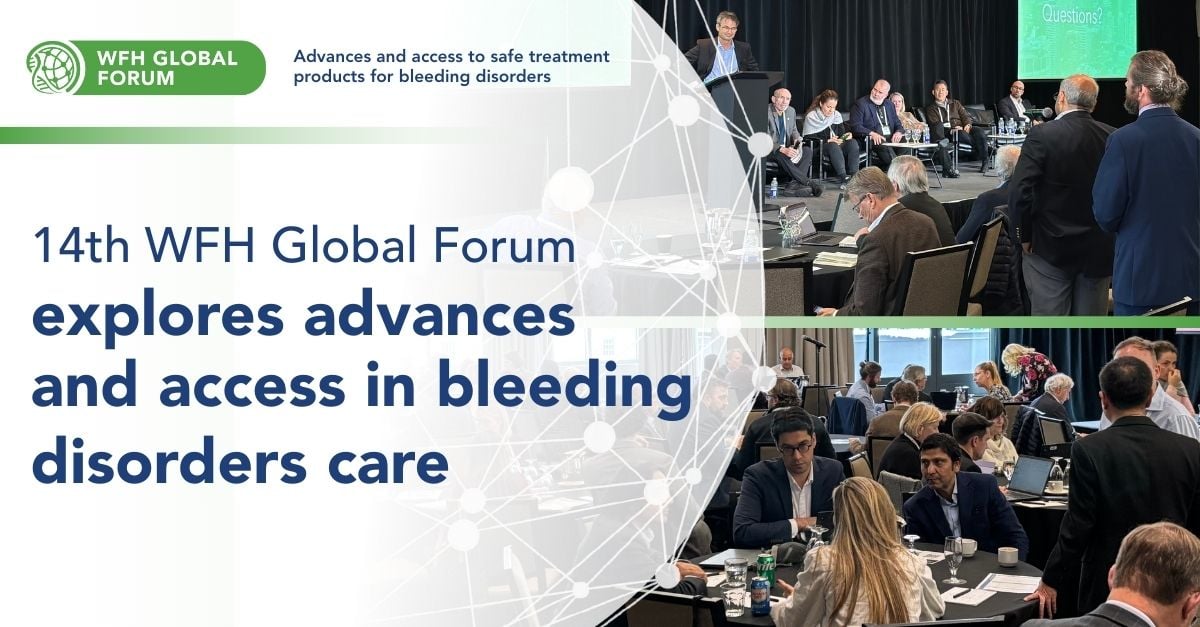Day 1 of the WFH Global Forum focused on the need for continuous vigilance and adaptation in pathogen safety, addressing biases and gaps in women’s care, and complexities in diagnosis and treating von Willebrand disease (VWD). Sessions also explored recently approved rebalancing agents as well as global availability of treatment products.
Day 2 opened with an inspiring keynote presentation by WFH Board of Directors Medical Member, Cedric Hermans, MD, on the growing impact of artificial intelligence (AI) on hemophilia care. Hermans discussed AI’s potential for enabling personalized treatment, improving education, optimizing clinical practice, and driving therapeutic innovation. Subsequent sessions focused on the impact of different WFH programs on clinical care in countries, the evolving gene therapy landscape, and the innovative treatments and technologies on the horizon.
The WFH Global Forum offered a unique opportunity for participants to assess the current state of care for all people with bleeding disorders, explore future therapeutic options, share experiences, and discuss innovative strategies to improve access worldwide—reaffirming the community’s commitment to advancing treatment and ensuring safe, sustainable care for everyone.
To learn more about the 14th WFH Global Forum, click here.
The 14th edition of the WFH Global Forum was supported by funding from: CSL, Pfizer, Sanofi, and Sobi; with additional support from: Biomarin.












